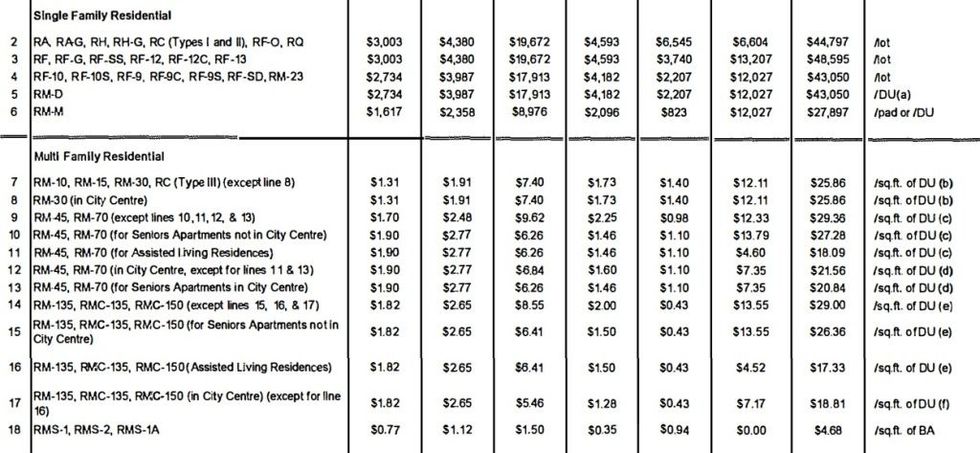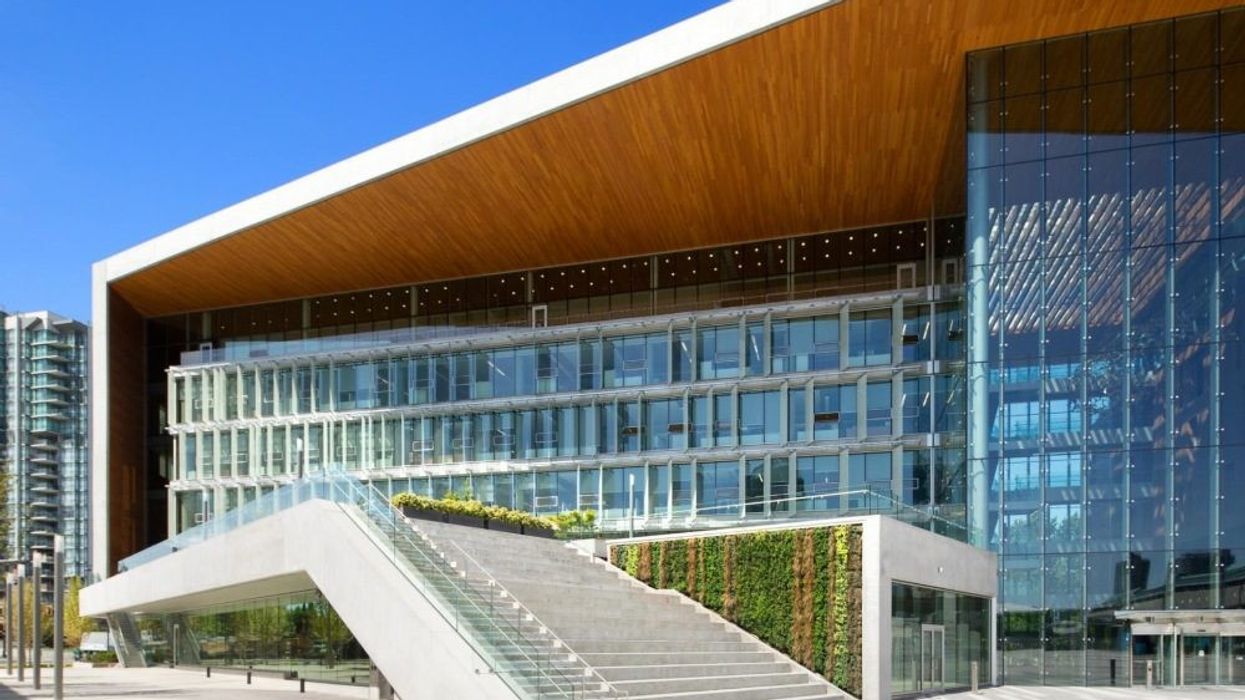In a council meeting last week, the City of Surrey gave a first, second, and third reading to its 2023 Development Cost Charge Bylaw, which sets out new rates for the Development Cost Charges (DCCs) the City levies on new development projects.
Council authorized staff to forward the bylaw to the Provincial Inspector of Municipalities, which needs to approve the bylaw before the City can adopt and enact the bylaw.
The updated bylaw includes average DCC rate increases of 9.3% for single-family lots and 9.8% for multi-family lots. Both increase are averages, which vary depending on factors such as building type, neighbourhood, and zoning.

The City says that the increased rates "reflect increases in annual construction and property costs, and increased infrastructure projects to support growth."
"In 2022, average construction costs increased by 8% and land costs increased by 9%," the City notes, and adds that the 9.3% and 9.8% increase equate to approximately $4,507 for the average single-detached home, $4,550 for the average townhouse, and $2,800 for the average high-rise apartment.
The DCCs are charged by lot for single-family lots and by square footage per unit on multi-family lots. The rates were also increased for non-residential lots as well, including in commercial, industrial, and institutional zones, but by smaller amounts.

In January, a Municipal Benchmarking Report published by the Canadian Home Builder's Association found that Surrey's government development fees were some of the highest in not just British Columbia, but all of Canada.
Maximum DCC amounts that the City can charge for multi-family development projects have also been increased. In the 2022 Development Cost Charge Bylaw, maximums ranged from $23,513 per unit to $45,256, depending on the multi-family residential zoning of the project. In the updated 2023 bylaw, those same maximum amounts now range from $25,600 to $49,823 per unit.
Development Cost Charges, along with Community Amenity Contributions that municipalities charge for rezonings, add to the overall cost for developers to build housing, costs that have already gone up in the past year due to the aforementioned increase in construction costs, not to mention labour shortages and the increased cost of lending. Costs going up could also push developers to then pass the increases on to end-users.
READ: Vancouver High-Rise Development Fees 2X Surrey, 6X Burnaby, Highest In Canada
In the City of Surrey, Development Cost Charges are used to fund infrastructure improvements such as new roads and bridges, water pump stations, sewer upgrades, and acquiring parkland. The Province of British Columbia's Local Government Act legislates how municipalities can collect and use DCCs, including the eligibility requirements for projects to be funded via collected DCCs.
The City expects to receive the necessary approval from the provincial government in March or April, allowing the City to give the Development Cost Charge Bylaw Final Adoption in April. The new rates would then come into effect in May, on applicable applications not approved by the City before May 15, 2023.





















